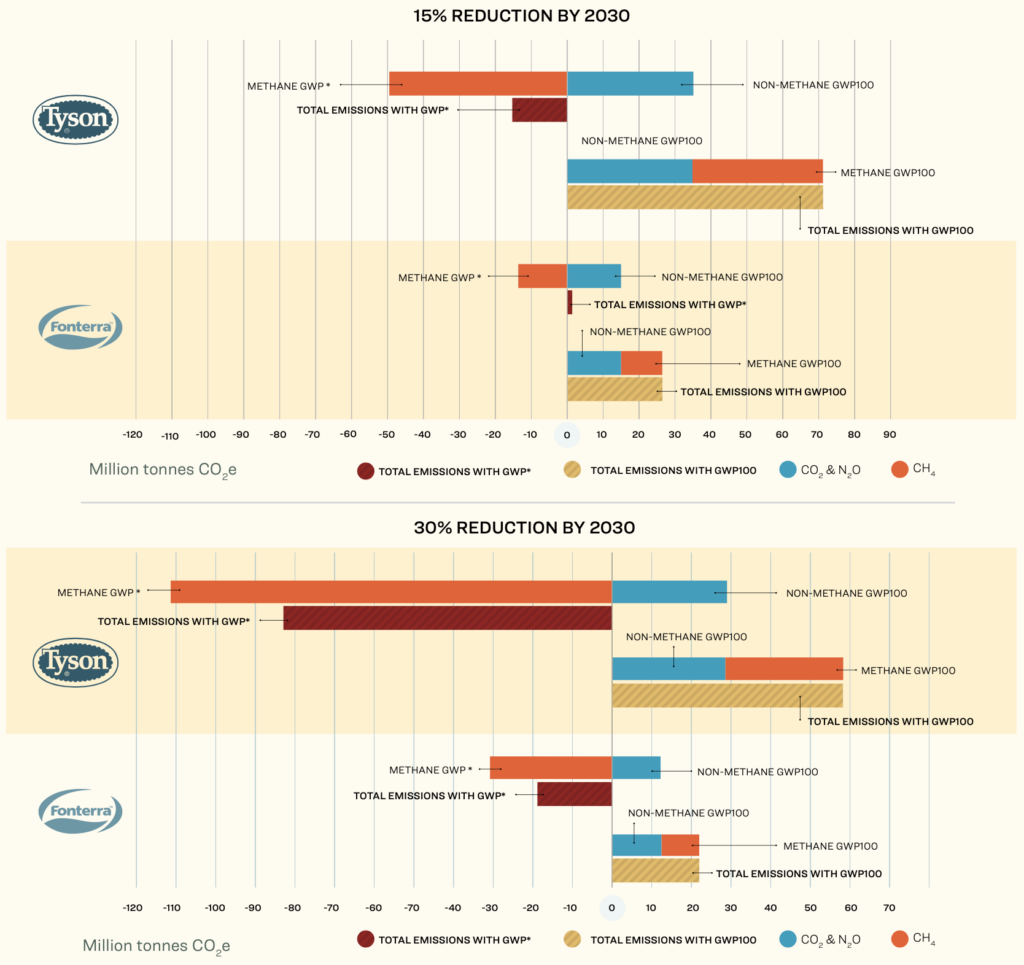Doctors Urge UK Government to Retract ‘Misleading’ Campaign Asking Brits to Eat Meat & Dairy
7 Mins Read
A group of healthcare organisations are asking the UK government to withdraw a campaign that they say spreads misinformation about the benefits of eating meat and dairy.
As restaurants, retailers and consumers prepared for Veganuary last December, a livestock farming group was working on its own campaign in response.
The Agriculture and Horticulture Development Board (AHDB) – which is funded by farmers and food suppliers – launched a drive to promote beef, lamb and dairy consumption in the UK, which included three TV commercials as well as magazine and online ads.
A meat industry backlash to a campaign promoting alternatives to its products isn’t anything new – but what set this one apart was that it was backed by the UK government. AHDB falls under the wing of the Department for Environment, Food and Rural Affairs (Defra). The Let’s Eat Balanced campaign launched in January was part of its annual efforts targeting people attempting to reduce their meat and dairy intake.
The messaging contained nuggets proclaiming that British meat and dairy are “amongst the most sustainable in the world” and that it was helping consumers “adopt a sustainable, healthy and nutritiously balanced diet”. On its website, one line reads: “Did you know that beef, pork, lamb and dairy are natural sources of vitamin B12, an essential vitamin not naturally present in a vegan diet?”

But now, doctors’ associations from across the UK are hitting back at these claims, warning that these are “disingenuous” and “at odds with established scientific evidence on healthy and sustainable diets”.
In an open letter penned by Dr Matthew Lee, sustainability lead at Doctors Association UK, and Dr Shireen Kassam, co-founder of Plant-Based Health Professionals UK, the group is asking the UK government to retract the campaign. The effort is endorsed by organisations like the UK Health Alliance on Climate Change, the BDA Renal Nutrition Specialist Group, and Green at Barts Health, among others.
“We call on the AHDB to wholeheartedly embrace this difficult, but necessary step, by retracting the campaign to promote increased consumption of meat and dairy using misleading and un-evidenced marketing,” the letter states.
Suggestive ‘health benefits’ ignore meat reduction guidance
To the AHDB’s point, the letter acknowledges that meat is a source of protein, zinc, iron and vitamin B12, but adds that these can also be obtained by a well-planned plant-based diet. Similarly, dairy is a source of calcium, but this is a mineral in the soil and can also be obtained from beans, green vegetables, and fortified dairy analogues and tofu.
Illustrating this point, the medical experts point out how vitamin B12 is made by microorganisms and that cows are supplemented with cobalt to support sufficient production by gut bacteria. “Many farm animals are also supplemented directly with vitamin B12. Given that fortification of either animal or human food is required for B12 intake, direct fortification of human food or supplementation would be a more efficient use of resources,” it reads.

On the contrary, it points to the cancer risk presented by processed and red meats, which have been classified as class one and two carcinogens, respectively, by the World Health Organization. Moreover, it cites studies that have shown strong links between red meat and type 2 diabetes. Plant-based diets, however, are “not only nutritionally adequate”, but also present better health outcomes, the doctors argue.
“Encouraging a higher consumption of fruit, vegetables, whole grains, legumes, nuts and seeds whilst limiting or avoiding animal-sourced foods reduces the risk of heart disease, high blood pressure, type 2 diabetes, obesity and certain cancers. Replacing animal protein with plant sources of protein is associated with significant improvement in health outcomes, including reduced risk of premature death,” the letter reads.
“Yet the Let’s Eat Balanced campaign has links to suggestive ‘health benefits’ whilst ignoring the guidance to limit meat intake, particularly red and processed meat.”
Meat is not sustainable
The AHDB’s campaign had stated that “sustainability isn’t just about carbon”, and there are “many other things to consider”. It mentioned data showing that transport and energy emissions are higher than livestock in the UK, while the animal agriculture industry accounts for 7% of national GHG emissions.
However, the livestock group left out methane in all of its communications, which is a shorter-lived gas, but 80 times more potent than carbon. The same government report it cited for carbon emissions revealed that agriculture accounted for 48% of the UK’s methane emissions – and while that figure has fallen by 16% from a 1990 baseline, it has largely been at the same level since 2009.
The AHDB is also a supporter of GWP* (global warming potential star), a new metric to measure methane emissions proposed by meat and dairy producers and certain governments. The idea is to replace the current GWP100 system to measure the warming potential of total GHG emissions over a 100-year period with a focus on changes in the rate of emissions between two points in time (usually over a decadal timescale). Critics argue that this is nothing more than a greenwashing tool to allow the industry to understate its impact and avoid climate action

The UK has been heavily hit by climate-change-induced extreme weather, with the recent record amounts of rain leaving the agricultural industry “on the brink”, according to the AHDB itself. It has left many farmers considering quitting the profession altogether, with their confidence at a 14-year low.
Currently, 85% of farmland in the UK is used for animal agriculture, but these foods only provide 48% of the country’s protein and 32% of its calories. “The latest UK-specific research makes it clear that a diet containing animal products is significantly more harmful to the environment than one that does not, with plant-based diets having approximately 25% of the environmental impact of a diet with a high meat intake,” the doctors write.
“In the UK, 70% of our total food-related emissions come from red meat and dairy production. Methane emissions from cows alone will prevent us from limiting global warming to safe levels. Excess consumption of red meat and dairy is leading to 42,000 deaths in the UK annually.”
The financial drawbacks of animal agriculture
The letter highlights a modelling study that shows a ‘plant-based by default’ approach could save the UK’s economically strained and labour-stretched National Health Service (NHS) £74M annually, with significant household savings too if patients are supported in making dietary shifts.
Similar research by the Office of Health Economics estimated that if England were to adopt a completely plant-based diet, the NHS would see a net benefit of up to £18.8B a year. “No other intervention can deliver such significant health benefits alongside cost savings and environmental benefits,” the letter reads.
“As health professionals, we recognise the importance of farmers and the key role they play in the production of healthy and nutritious food whilst being stewards of our land. The countryside will always require farmers, and they need support from their governing bodies to adapt their industry in a way that allows for the restoration of nature and acceleration of carbon sequestration, whilst continuing to provide locally produced plant-based foods,” it continues.
“We encourage AHDB and Defra to engage with healthcare professionals in developing policies and campaigns to support the future of the farming industry that encourages the increased consumption of locally grown fruit, vegetables, beans and pulses, alongside a significant reduction in production and consumption of meat and dairy produce.”
In response, an AHDB representative told the Independent: “Let’s Eat Balanced is a fully evidence-based campaign communicating the nutritional and sustainability benefits of British red meat and dairy in a manner that aligns with the government’s dietary guidelines, as outlined in the Eatwell Guide… Anyone advocating a totally global plant-based diet as a panacea to climate change ignores the fact the realities are far more complex. Solutions lie in a balance of sustainable plant and sustainable meat and sustainable fish production along with a balanced plate approach to diets and portion sizes.”
But the AHDB’s campaign doesn’t make room for much plant-based eating at all – it isn’t encouraging a balance, it is pushing people to eat more meat. As for “sustainable meat”, this really isn’t a thing. Analysis by Our World in Data shows that buying imported beef from Central America in the UK versus buying locally barely makes a difference. What farmers really need to do is reduce meat and dairy production by a third if the UK is to meet its climate goals, according to the WWF.
The UK has been criticised for not centring climate change in its election campaigns this year, but if it is to reach its net zero goal by 2050, a food system transformation is necessary. “This would be invaluable to the health of the environment, the UK public, and to safeguard all our futures,” the letter concludes.




